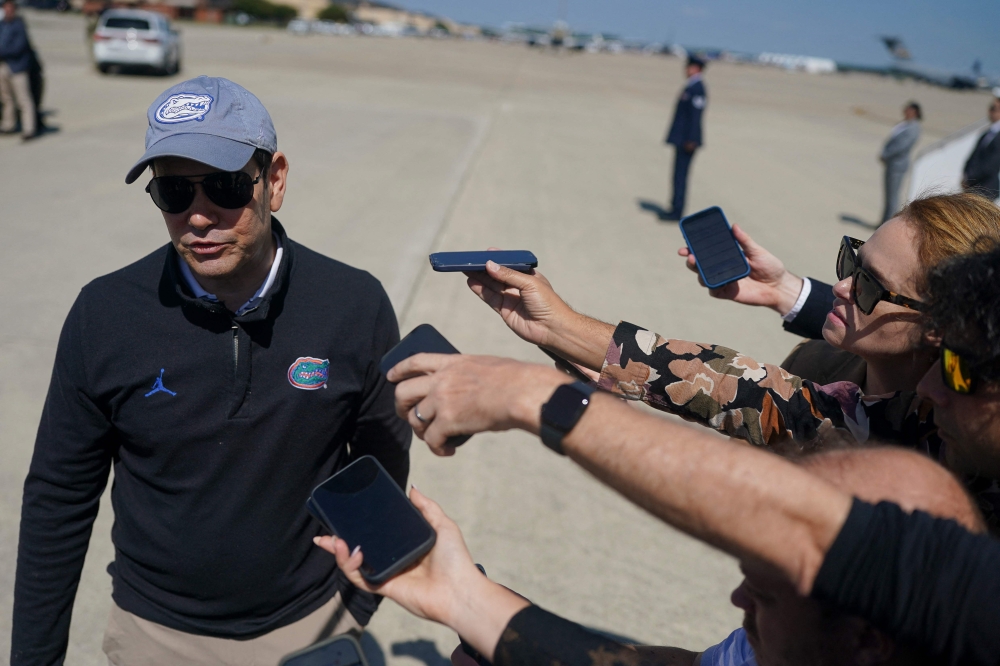JERUSALEM, Sept 14 – As the war in Gaza continues to rage, hopes for a ceasefire are growing fainter. Israeli Prime Minister Benjamin Netanyahu has doubled down on his resolve, declaring that the elimination of Hamas leaders—particularly those residing in Qatar—is essential to ending the nearly two-year-long conflict.
“The Hamas terrorist chiefs living in Qatar don’t care about the people in Gaza. They blocked all ceasefire attempts in order to endlessly drag out the war,” Netanyahu posted on X (formerly Twitter).
“Getting rid of them would remove the main obstacle to releasing all our hostages and ending the war.”
His statement came just hours before US Senator Marco Rubio arrived in Israel. Rubio acknowledged the controversy surrounding Israel’s strike on Hamas targets in Qatar but assured that it would not derail the US-Israel alliance.
“It’s not going to change the nature of our relationship with the Israelis,” Rubio told reporters. “But we are going to have to talk about it – primarily, what impact this has on diplomatic efforts to bring about a truce.”
Gaza in Flames
Meanwhile, the humanitarian situation in Gaza continues to deteriorate. Israel’s military campaign has intensified in Gaza City, the largest urban center in the strip. Thousands have fled after evacuation orders, but many more remain trapped in the city under constant threat. According to the UN, nearly one million people still inhabit the area, which now faces famine due to aid restrictions.
“Bombing happens here too – the south isn’t safe either,” said Bakri Diab, a 35-year-old father of four who fled western Gaza. “All the occupation has done is force people to crowd into places with no basic services and no safety.”
The Gaza Civil Defence agency reported 32 deaths from Israeli fire on Saturday alone, though independent verification remains challenging due to media restrictions.
Global Tensions Rise
International frustration with Israel’s handling of the war is mounting. The UN General Assembly has voted to revive discussions on the two-state solution, directly challenging Israel’s position. Countries like Britain, France, and Germany have also called for an immediate ceasefire and are expected to formally recognize Palestinian statehood in the coming days.
Despite this, Israel remains backed by its most powerful ally—the United States. The Biden administration, although voicing concern, continues to echo key goals: preventing Hamas from ruling Gaza again and ensuring the safe return of Israeli hostages.
Yet, discontent is growing even within Israel. The Hostages and Missing Families Forum, the leading advocacy group for hostage families, has pointed fingers at Netanyahu, calling him “the one obstacle” to a ceasefire and accusing him of sabotaging negotiations.
Out of the 251 hostages taken in the October 2023 Hamas attack on Israel, 47 remain in Gaza—25 of them presumed dead by the Israeli military.
‘An Alarming Passivity’
Brian Katulis, a senior fellow at the Middle East Institute and former advisor under President Clinton, said the US seems reluctant to push for a ceasefire.
“There is an alarming passivity in actually getting to a ceasefire in Gaza,” Katulis said. “The administration appears more influenced by domestic political pressures and evangelical views, rather than aligning with broader international and Arab world interests.”
Rubio is expected to meet Netanyahu at the Western Wall in Jerusalem on Sunday, underscoring continued diplomatic unity despite growing international criticism.
The war was triggered by Hamas’s October 2023 attack on Israel, which left 1,219 people dead, most of them civilians. Israel’s response has so far claimed over 64,800 lives in Gaza, according to the territory’s health ministry—again, mostly civilians.





